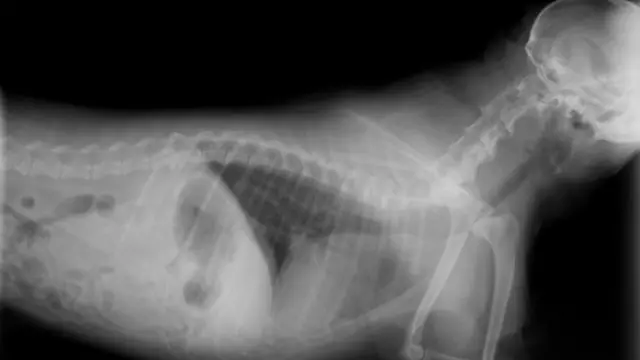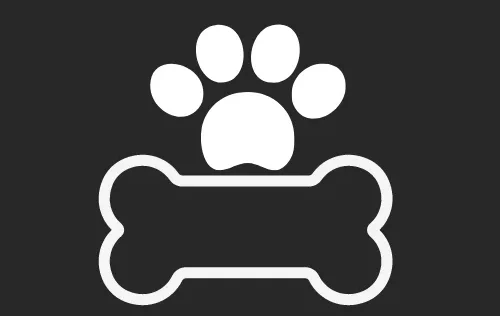Why Is My Dog Breathing Fast? Understanding Causes, Solutions, and When to Worry
Key Takeaways
- Learn about normal and abnormal breathing rates in dogs.
- Discover common causes of fast breathing and when to seek help.
- Get tips on how to monitor and improve your dog’s respiratory health.

Ever noticed your dog breathing fast and wondered why? Understanding your dog’s breathing is crucial. It can indicate various health issues, some needing immediate attention. This blog aims to help you understand why your dog might be breathing rapidly and what you can do about it.
Normal Dog Breathing Rate vs. Abnormal Breathing Patterns
What Is a Normal Respiratory Rate in Dogs?
A dog’s normal respiratory rate is 10-35 breaths per minute. Knowing this helps you identify any abnormalities early. To measure your dog’s breathing rate, count the number of breaths they take in 60 seconds. You can use a stopwatch or a mobile timer app for accuracy.
How to Measure Your Dog’s Breathing Rate at Home
Start by placing your dog in a calm, quiet environment. Use a stopwatch to count each breath your dog takes for a full minute. Remember, one breath includes both inhalation and exhalation. Apps like “Pet First Aid” can help you track this data effectively.
Signs of Abnormal Breathing Patterns
Abnormal breathing can be shallow, rapid, or labored. If your dog is breathing faster than 35 breaths per minute while resting, it could be a sign of a problem. Other red flags include noisy breathing, wheezing, or using abdominal muscles to breathe.
Common Causes of Fast Breathing in Dogs
Heat and Overexertion
Dogs often breathe rapidly after exercise or in hot weather. This is their way of cooling down. Ensure your dog has access to water and shade to prevent overheating.
Stress and Anxiety
Just like humans, dogs can experience stress and anxiety, which may cause them to breathe rapidly. Common triggers include loud noises, new environments, or separation anxiety. Providing a calm and secure space can help alleviate this.
Respiratory Infections and Allergies
Conditions like kennel cough, asthma, or allergies can cause your dog to breathe rapidly. These conditions often come with other symptoms like coughing and sneezing. A vet visit is essential for proper diagnosis and treatment.
Heart Issues
Canine congestive heart failure can impact your dog’s breathing. Symptoms include fatigue, coughing, and difficulty breathing. Immediate veterinary care is crucial in such cases.
Pain or Injury
Injuries or pain can cause your dog to breathe rapidly. If you suspect your dog is hurt, a vet visit is necessary. Look for other signs of distress like limping or whining.
When Is Fast Breathing in Dogs a Cause for Concern?
When to Take Your Dog to the Vet
If your dog is breathing fast along with signs of distress, color change in gums, or lethargy, it’s time to see a vet. These symptoms could indicate a serious condition requiring immediate attention.
Checklist: Red Flags That Indicate a Potential Emergency
- Breathing faster than 35 breaths per minute at rest.
- Gums turning blue or pale.
- Persistent coughing or gagging.
- Lethargy or unwillingness to move.
- Using abdominal muscles to breathe.
Emergency Vet Clinics
In case of an emergency, knowing where the nearest vet clinic is can save your dog’s life. Websites like Vetstreet.com offer a vet finder tool to help you locate nearby veterinary services quickly.
Understanding Specific Conditions That Cause Fast Breathing
Heatstroke
Heatstroke occurs when a dog can’t cool down effectively. This condition causes rapid breathing and requires immediate action. Move your dog to a cooler area and offer water. If symptoms persist, consult a vet immediately.
Pneumonia and Infections
Respiratory infections like pneumonia can cause fast breathing. Symptoms may include coughing, fever, and lethargy. Antibiotics are often required, making a vet visit essential.
Obesity and Breathing Issues
Excess weight can strain your dog’s respiratory system, leading to rapid breathing. A balanced diet and regular exercise can help manage your dog’s weight and improve breathing.
Heartworm Disease
Heartworms live in the heart and lungs, causing labored breathing. Monthly heartworm prevention is crucial. If your dog is diagnosed with heartworms, follow the vet’s treatment plan strictly.
How to Monitor and Improve Your Dog’s Breathing
How to Track
Use tools like mobile respiratory rate trackers or apps to monitor your dog’s breathing. Regular tracking helps you catch any abnormalities early.
Managing Overheating
During hot weather or after exercise, ensure your dog stays cool. Provide plenty of water and a shady spot to rest. Cooling mats or vests can also help regulate their temperature.
Calming Techniques
If your dog is stressed or anxious, use calming techniques like gentle petting, calming music, or aromatherapy. Creating a serene environment can significantly improve your dog’s breathing.
Expert Tips: Consulting Vets for Dog Breathing Issues
When to Consult a Vet
If your dog’s rapid breathing persists or is accompanied by other symptoms, consult a vet. Tests like chest X-rays and blood tests can help diagnose the issue.

US Vet Recommendations
- Animal Medical Center, New York, NY: Specializes in respiratory and cardiac issues in pets.
- VCA West Los Angeles Animal Hospital, CA: Known for emergency care and respiratory disorders.
- Angell Animal Medical Center, Boston, MA: Renowned for internal medicine and cardiac evaluations.
- BluePearl Pet Hospital, Tampa, FL: Offers comprehensive care with specialists in emergency medicine and surgery, making it a go-to for respiratory and cardiac emergencies.
- Hope Advanced Veterinary Center, Vienna, VA: Known for advanced diagnostics and treatments in respiratory and internal medicine, providing 24/7 emergency services.
- The Animal Medical Center of Chicago, IL: Offers expert consultations for breathing and heart conditions, with a strong focus on preventative care.
- University of Pennsylvania’s Ryan Veterinary Hospital, Philadelphia, PA: Provides access to cutting-edge treatment options and specialists renowned for their expertise in respiratory conditions.
- Cornell University Hospital for Animals, Ithaca, NY: Noted for advanced veterinary care, including complex respiratory and cardiac cases managed by leading experts in the field.
Finding a Certified Veterinary Specialist
Use resources like the American College of Veterinary Internal Medicine (ACVIM) to find certified specialists in your area. Specialized care can make a significant difference in diagnosing and treating respiratory issues.
Conclusion
Monitoring your dog’s breathing is crucial for their health. Fast breathing can indicate various issues, from heat and stress to serious medical conditions. Being aware of the signs and knowing when to seek veterinary help can make all the difference.
Regular vet check-ups and lifestyle adjustments can help maintain your dog’s respiratory health. For more resources, visit websites like Vetstreet.com or PetMD.com to find nearby veterinarians and emergency care. Prioritize your dog’s health, and you’ll enjoy many happy years together.
Frequently Asked Questions (FAQs)
Why is my dog’s breathing fast only during sleep?
Rapid breathing during sleep, known as REM sleep breathing disorder, is typically normal and occurs when your dog is dreaming. However, if it happens frequently or is accompanied by signs of distress, it may be worth consulting your vet to ensure there are no underlying health issues.
Can changes in diet help improve my dog’s breathing?
Yes, a diet tailored to manage weight and improve cardiovascular health can assist in better breathing. Providing a balanced diet with appropriate nutrients can help maintain healthy weight and respiratory function. Always consult your vet before making significant changes to your dog’s diet.
What home remedies can help with my dog‘s rapid breathing?
While it’s essential to consult a vet for serious breathing conditions, you can help ease mild symptoms by ensuring your dog is not overheated, providing fresh water, and creating a calm environment. Using fans, cooling mats, or taking stress-reducing measures can also be beneficial.
Is rapid breathing in dogs always an emergency?
Not always. Rapid breathing can occur due to excitement, exercise, or heat. However, if it occurs at rest or with other symptoms such as lethargy, blue gums, or coughing, it is best to seek immediate veterinary attention.
How often should I monitor my dog’s breathing rate?
Regularly checking your dog’s breathing rate, especially if they have a history of respiratory issues, can help catch any problems early. Monitoring once a week as a part of general health checks is a good practice, or more frequently if recommended by your vet.






